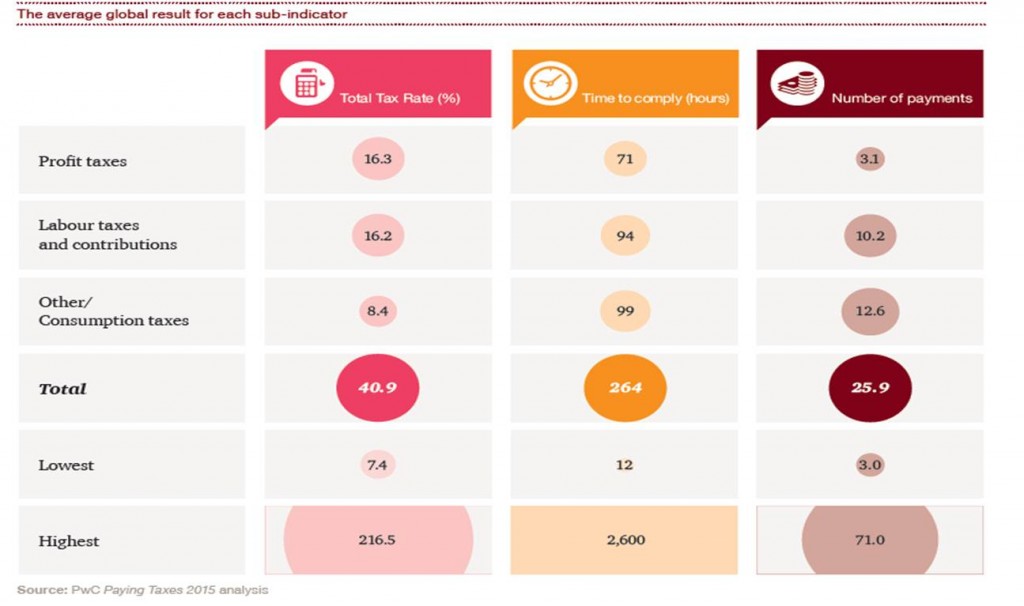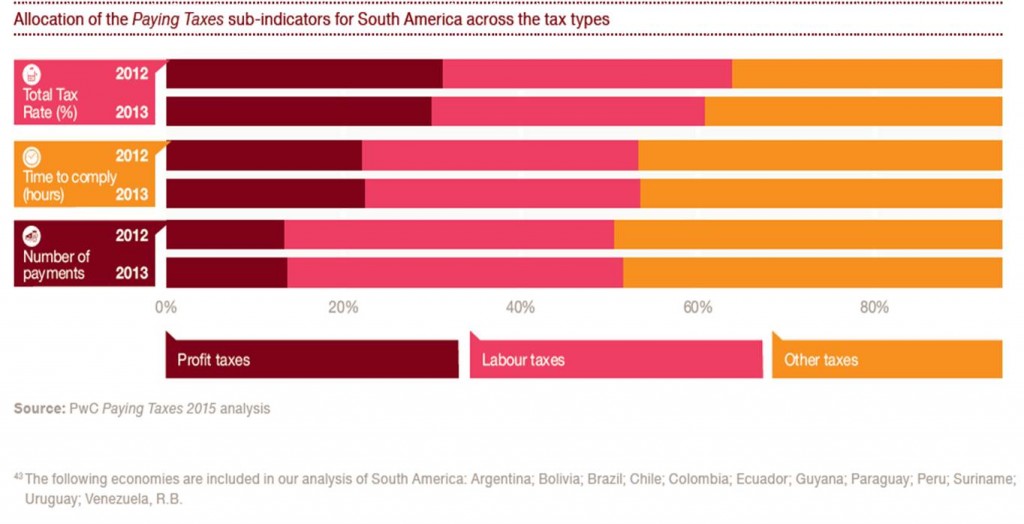PWC Ranking Condemns Laborious, Archaic Tax Regimes
When it comes to smooth and convenient tax payments, Latin America lags behind the global competition. That is according to an annual report published by consulting firm PWC in conjunction with the World Bank.
The 10th edition of the 175-page report, released November 20, estimates the global average at 264 hours to comply with tax requirements. Compared to 2012, businesses worldwide paid an average 0.1 percent more in profit taxes, while other tax burdens fell by 0.3 percent.
In Central America and the Caribbean, the lack of online payment systems that have made complying with tributary demands easier elsewhere in the world. Latin-American entrepreneurs, more broadly speaking, also pay significantly more than their counterparts in the Middle East, at 55.4 percent on profits, while the global average is 40.9 percent.

The global average for time needed to comply with taxes was 264 hours, under half the 620 hours needed in Latin America. (PWC)
Of the pack in South America, though, Toscano points to Peru for the best tax environment. Peru levies a 36 percent tax rate on net business profits, and businesses spend 256 hours per year on eight types of transactions and payments — less than half the time taken on average in Latin America.
However, he suggests that the latest PWC data should be assessed in conjunction with the World Bank’s Doing Business report, prompting him to consider Colombia as the most business-friendly country in Latin America, followed by Peru, Mexico, and Chile.
“We must remember that taxes not only shape the favorability of the business environment,” Toscano says, “but also affect other aspects such as the ease of starting a business, the management of construction permits, obtaining utilities, and ease of access to bank credit.”
Africa, Middle East Lead
The PWC report concludes that tax regimes around the world are adapting at different speeds to globalization, demographic shifts, and technological advances. Some 43 percent of countries now operate on an electronic payment system, with 105 of the 379 significant changes made worldwide to tax laws in 2013 concerning online payments.In 2013, the Middle East levied the least amount of taxes on businesses, which in turn spent the least amount of time filing tax payments. However, the region continues to lag behind the rest of the world in the use of electronic payment systems.
In 2012, it was Africa that experienced the most positive changes concerning the ease of tax payments. Amid widespread legislative changes, Asia and Eastern Europe nevertheless backtracked with increased tax rates, while North America saw a 2.5 percent decline in tax burdens.

Latin-American businesses paid 55.4 percent of profits in 2013; the global average was 40.9 percent. (PWC)
Protecting the Golden Goose
The report authors emphasize that governments must maintain a delicate balance when establishing tax rates, to secure sufficient revenue for public works and services while making sure not to deter investment.Toscano, an independent observer, explains that taxes beyond the functions and responsibilities of the government provide unnecessary revenue. He adds that “Taxation should be based on a flat rate for everyone. Progressive taxes, which rise in accordance with income, distort relative wealth and eliminate incentives to be more productive.”
This is highly informatics, crisp and clear. I think that Everything has been described in systematic manner so that reader could get maximum information and learn many things.
ReplyDeleteFirst Canadian Aligning R&D for SR&ED Tax Credits